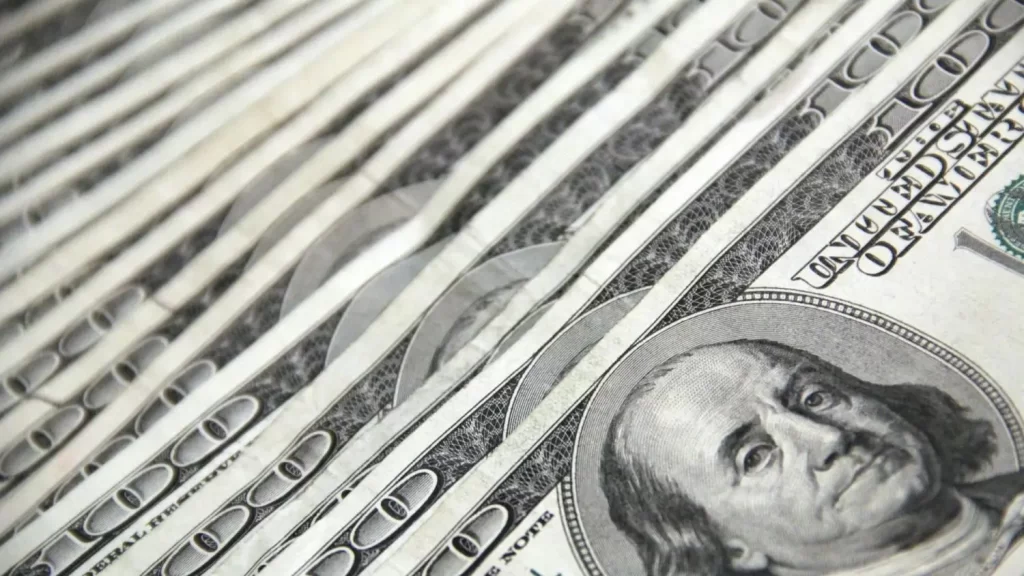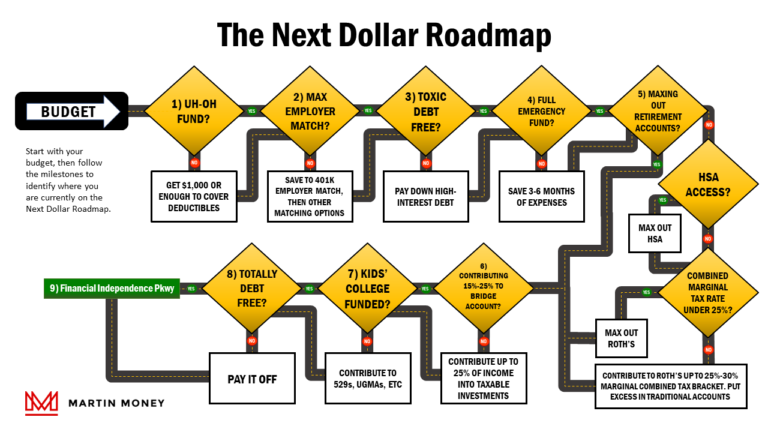How To Be a Tax-Free Millionaire
I’m sure you’ve heard it said that the only certainties in life are death and taxes.
We have Ben Franklin to thank for that bit of wisdom, by the way.
Let me begin by confessing that this is generally a true statement. There aren’t many ways to avoid taxes and virtually none that get us out of them entirely.
However, there are a few cases that come to my mind (meaning there may be others) in which the government either allows you to accept, earn, invest, withdraw, or distribute money without levying a tax against the sum.
But when they do this, it’s almost always because they are trying to incentivize certain behaviors.
In other words, there are almost always strings attached that take a lot of the shine and glimmer off the “tax-free” aspects of these types of accounts or investments.
Let’s talk about several account types and how you might leverage them for their tax-free benefits.
As we run through these, I’ll discuss them in the order that I think is least impressive to most impressive, saving my favorite option for last.
Insurance
I’m not even sure this one counts, so I’ll move through it quickly.
Indexed Universal Life Insurance allows you to earn tax-free interest, then borrow against the policy which also doesn’t incur a tax.
Finally, once you die, your heirs receive the proceeds of the policy completely tax-free.
I’m going to be perfectly honest here; this is a tax-free way to generate interest.
It is also a really dumb way to “invest” your money.
In this case, where the government loses, the insurance company wins.
Oh, and you lose too.
You lose because Universal Life Insurance is incredibly expensive to own. You may not pay a tax, but there is certainly another price to pay for going this route.
Besides, you’ll probably be funding the account with money that’s already been taxed, so I’m failing to see any advantage to using UIL’s as a way to generate tax-free wealth.
Additionally, permanent insurance is a terrible way to procure life insurance. You’ll want to stick to term life policies which are affordable and leave you some money to invest for yourself instead of your insurance company.
Alternatively, if you die while your life is insured, the benefit is generally tax-free, but I doubt you’re interested in croaking for the sake of avoiding taxes so let’s move on.
Inheritance
The second tax-free method we’ll discuss is inheritance.
First, let’s acknowledge that an inheritance is generally going to be tax-free, assuming the total value of the estate is below the lifetime exemption amount for the benefactor(s) of the estate.
So, if you happen to receive money, property, assets, or any combination thereof, you probably won’t owe any tax for that inheritance.
(Tax-deferred assets are an exception.)
What may be more valuable though is the fact that appreciated assets are also given a free step up in their tax basis when transferred as part of an estate.
Houses are a great example.
Let’s assume you inherit a house from your parents after they pass away and over their lifetime the value of their home has increased by $400,000.
Because the home is an appreciated asset, you inherit its entire value completely tax-free.
Of course, if you wait to sell it later and it appreciates further, you’ll owe tax on that part, but the value when it came from your parents is yours to keep.
Stocks and other equities work the same way.
Alas, once again, the primary drawback is that someone has to pass away for this tax-free benefit to occur.
Again, the assets transferred in an estate were likely accumulated with money that had already been taxed, but there aren’t many other ways to avoid taxes on such a potentially large amount of capital appreciation.
I know it’s morbid, but it’s also an effective tax planning tool to keep in mind.
Tax-Free Investments
Third on my list is tax-free investments.
There are certain types of investments that receive favorable tax treatment.
For example, municipal bonds are not taxed at a federal level (and usually not the state) and treasuries are not taxed at the state or local level.
Granted, the interest these investments typically generate isn’t very exciting, but this is a review of tax-free options, not of investments that produce exciting returns.
Additionally, there are mutual funds and ETFs that are tax exempt by owning the muni’s and treasuries we just discussed.
These can be a great way to buy tax-free diversification, but because the returns are modest at best you should keep a close eye on the fund’s expenses so your tax-free benefits aren’t quickly outweighed by the costs of the investment.
Muni’s and treasuries are both very popular investments for wealthy investors who want to preserve the value of their assets without more exposure to taxes.
However, if you’re still building wealth, I would not consider them a high priority.
Buy, Borrow, Die
No, this isn’t a reference to a James Bond movie. Buy, Borrow, Die is a real financial strategy used by wealthy individuals to avoid paying taxes on appreciated assets they would otherwise sell for income.
We’ve already discussed that the government doesn’t tax appreciated assets that we don’t sell and they don’t tax them when we die.
The government also doesn’t tax debt.
So, by borrowing against assets that haven’t been sold, one could potentially avoid being taxed on that wealth until they die.
Here’s how it works.
- Buy an appreciating asset like a home, stocks, real estate, art, a Ferrari, etc.
- Use the asset and its appreciated value as collateral for a loan (which won’t be taxed).
- Die.
Once you die, your heirs receive a free step up in the tax basis of the asset, meaning they can sell the asset to pay of the debts outstanding against it.
All without paying a dime to Uncle Sam.
Of course, you will owe interest, but if you’re wealthy enough to own the assets we’re talking about you would probably be avoiding 20% or higher tax rates on any income or capital gains you realize.
It would take an unreasonably high interest rate to be less attractive than those tax rates.
With that said, there are a few problems I see with is approach.
First, it involves debt. I don’t like debt. Borrowing money when you’re already rich sounds like buying trouble to me. No thanks.
Second, once again, you’ll probably need to use money that has already been taxed to buy the appreciating assets against which you plan to borrow. This doesn’t mean it’s a bad plan, but it’s not as if the whole balance of any loan you receive will be against unrealized appreciation.
Finally, I know it would depend on the structure of the loan, but what cash are you going to use to make regular payments against the balance of your debt?
It probably won’t be tax-free.
I can see this strategy working for highly appreciated assets and exceptionally wealthy people.
Maybe if a Brinks truck lands in my yard one day I’ll be able to do something like this. For now, I’ll settle for planting the seed in someone else’s mind.
Completely, Totally, Truly, Tax-Free
Next on my list is Health Savings Accounts.
This is the only example I could come up with that is truly, completely, totally, tax-free.
Here is a summary of the tax-free benefits of HSAs:
- Contributions to an HSA are either tax-free or tax-deductible.
- Contributions through a payroll deduction are also spared Social Security and Medicare tax (7.65%)
- Those contributions can then be invested and any earnings on those investments are allowed to accumulate tax free.
- All withdrawals made for a qualified medical expense are completely tax-free.
That means the money goes in, grows, and comes out without any tax being paid.
Pretty awesome, huh?
I’m going to address the warts in a second, but let’s stay in Happy Land a bit longer and just celebrate the fact that Benjamin Franklin was wrong.
There is a place where taxes are not certain! We did it America! O say, can you see or what?!?!
Now, back to those withdrawals.
I mentioned earlier when the government allows us some tax benefit, it’s generally because they’re trying to get us to do something we wouldn’t do on our own.
In this case, the government wants us to use high-deductible health plans (HDHPs).
I won’t get into a lengthy explanation here, but HDHPs basically put more responsibility for healthcare on us as opposed to our insurers. You can read more about HSAs and HDHPs in this post on our website.
Basically, all this means that you can’t really get the completely tax-free benefit unless you use the money for medical treatment.
That’s a lot less exciting, isn’t it?
Well, even if it’s reserved for only one category of spending, that’s still tax-free money and it’s an awfully big category.
Tax-Free Earnings & Withdrawals
The final tax-free category I will discuss is Roth accounts.
Roth accounts are available in many different types. You can have a Roth 401(k), IRA, 457, TSP, or 403(b) to name a few.
All of these tax-advantaged accounts share the same characteristic of having contributions to the accounts taxed, while all earnings and withdrawals can later be made completely tax-free.
There are certainly people who would disagree that Roth accounts are that special from a tax perspective, but I think they are quite unique.
If I were to summarize what I love most about Roth accounts, it’s the freedom they provide.
Inheritances? Sure, they’re tax-free for you, but don’t forget someone had to pass away for you to receive them and you didn’t have any control over how those assets were distributed or when.
Insurance? Yes. Again, tax-free. But it comes at a completely unreasonable cost in the form of exorbitant premiums.
HSA? I love ‘em, but again, very limited tax-free scope and you need to be able to prove that you used the money for a qualified expense. Not exactly “free” to me.
The other strategies we discussed were also funded with money that had already been taxed, so there’s no real advantage over the Roth there. Plus, there’s complexity in the buy, borrow, die strategy and paltry returns in buying tax-exempt securities.
With a Roth, once I pay Uncle Sam his share, I get to abruptly point to the door and tell him to get out. He has no more claim on this money. It’s all mine.
One of the greatest examples of this freedom being used to its maximum value is Peter Thiel.
Peter funded his Roth IRA with $2,000 of stock from his startup company he called PayPal. Perhaps you’ve heard of it.
Peter’s Roth IRA is now worth a cool $5 Billion.
Yes, that balance will be subject to estate taxes one day, but what is that to Peter Thiel?
In the meantime, he can use that money at will, completely tax-free. He won’t even have to pay RMDs on the balance when he reaches his mid-70s.
There isn’t a better place to have a large chunk of wealth than a Roth IRA.
You really do have the freedom to do whatever you want with it, without worrying about taxes, for the rest of your life.
Wrap Up
We have tons of information about strategically using Roth accounts on our website. Just use the search field in the top right corner and enter the word Roth (or click this link).
We also have a YouTube playlist if you’d rather watch me ramble on about them.
Thanks again for visiting.







